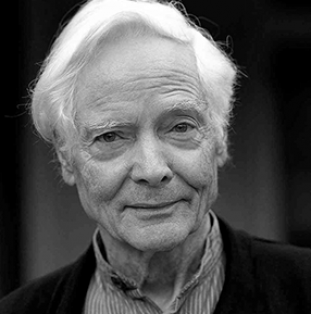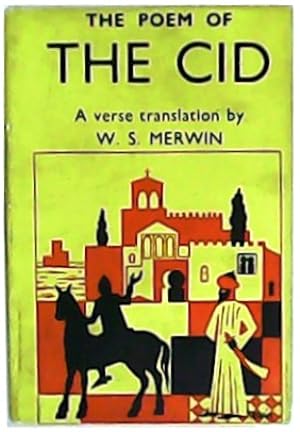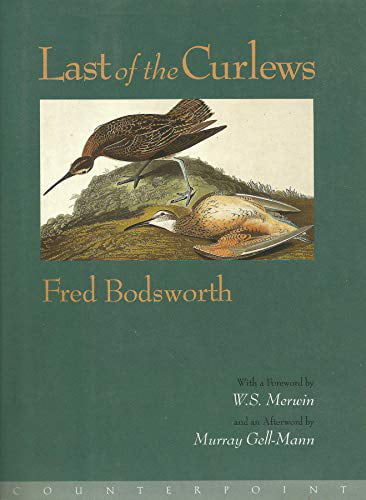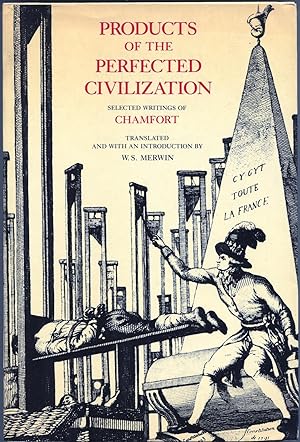 William Stanley Merwin was born in New York City on September 30, 1927. He was raised in Union City, New Jersey and Scranton, Pennsylvania, as the son of a Presbyterian minister, and began writing hymns as a child. Merwin attended Princeton University on a scholarship, where he was a classmate of Galway Kinnell, and studied poetry with the critic R. P. Blackmur, and his teaching assistant, John Berryman.
William Stanley Merwin was born in New York City on September 30, 1927. He was raised in Union City, New Jersey and Scranton, Pennsylvania, as the son of a Presbyterian minister, and began writing hymns as a child. Merwin attended Princeton University on a scholarship, where he was a classmate of Galway Kinnell, and studied poetry with the critic R. P. Blackmur, and his teaching assistant, John Berryman.
After graduating in 1948, Merwin spent an additional year at Princeton studying Romance languages, a pursuit that would later lead to his prolific work as a translator of Latin, Spanish, and French poetry. He soon married his first wife, Dorothy Jeanne Ferry, and began writing verse plays and working as a tutor to the children of wealthy families. He traveled throughout Europe, and in 1950 took a position in Majorca, Spain, as an instructor to the son of Robert Graves. While there, he met Dido Milroy, whom he eventually married after his first marriage ended.
After leaving Majorca, Merwin remained in Europe, living in London and the South of France for several years. In 1956, he received a fellowship from the Poets' Theater in Cambridge, MA, and moved back to the United States. While in Boston, he entered the circle of writers that surrounded Robert Lowell and decided to concentrate on poetry.
Merwin and Dido soon moved back to Europe and lived in London and the South of France. They became close friends with Sylvia Plath and Ted Hughes during this time. In 1968, Merwin and Dido separated, and he began living for part of the year in New York.
In 1967, Merwin published the critically acclaimed volume, The Lice (Atheneum, 1967), followed by The Carrier of Ladders (Atheneum, 1970), for which he received the Pulitzer Prize. In a letter to the New York Review of Books, he declared his intention to donate the $1000 prize to antiwar causes as protest against the Vietnam War. Auden responded through his own letter that the Pulitzer judges were not a political party and had no ties to American foreign policy.
In 1976, Merwin moved to Hawaii to study with the Zen Buddhist master Robert Aitken. There he married Paula Schwartz in a Buddhist ceremony in 1983. Merwin settled in Maui, in a home that he helped design and build, surrounded by acres of tropical forest that he restored after years of overuse. The Buddhism and environmentalism that Merwin devoted himself to in Hawaii influenced his later work.
Over the course of his long career, Merwin published over twenty books of poetry. He also published nearly twenty books of translation. Most recently, he received the 2014 Harold Morton Landon Translation Award from the Academy of American Poets, for his Selected Translations (Copper Canyon Press, 2013). His other honors include the Academy of American Poets Fellowship, the Aiken Taylor Award for Modern American Poetry, the Bollingen Prize, the Governor’s Award for Literature of the State of Hawaii, the Lannan Literary Award for Lifetime Achievement, the Lila Wallace-Reader’s Digest Writers’ Award, the Lenore Marshall Poetry Prize from the Academy of American Poets, the PEN Translation Prize, the Ruth Lilly Poetry Prize, the Shelley Memorial Award, the Wallace Stevens Award from the Academy of American Poets, and the Zbigniew Herbert International Literary Award, as well as fellowships from the Guggenheim Foundation, the National Endowment for the Arts, and the Rockefeller Foundation.
A former Chancellor of the Academy of American Poets, Merwin also served as Poetry Consultant to the Library of Congress and as Poet Laureate of the United States from 2010 to 2011. He died on March 15, 2019.
 Regions of Memory
by
W. S. Merwin; Ed Folsom; Cary Nelson
Regions of Memory
by
W. S. Merwin; Ed Folsom; Cary Nelson
 Four French Plays
by
W. S. Merwin (Translator, Foreword by)
Four French Plays
by
W. S. Merwin (Translator, Foreword by)
 From the Spanish Morning
by
W. S. Merwin (Translator, Foreword by)
From the Spanish Morning
by
W. S. Merwin (Translator, Foreword by)
 The Peacock's Egg
by
W. S. Merwin (Translator); Jeffrey Moussaieff Masson (Introduction by, Translator)
The Peacock's Egg
by
W. S. Merwin (Translator); Jeffrey Moussaieff Masson (Introduction by, Translator)
 Finding the Islands
by
W. S. Merwin
Finding the Islands
by
W. S. Merwin
 Selected Poems
by
Osip Mandelstam; Clarence Brown (Translator); W. S. Merwin (Translator)
Selected Poems
by
Osip Mandelstam; Clarence Brown (Translator); W. S. Merwin (Translator)
 Writings to an Unfinished Accompaniment
by
W.S. Merwin
Writings to an Unfinished Accompaniment
by
W.S. Merwin
 The Carrier of Ladders
by
W. S. Merwin
The Carrier of Ladders
by
W. S. Merwin
 Selected Translations, 1948-1968
by
W.S. Merwin
Selected Translations, 1948-1968
by
W.S. Merwin
 The Poem of the Cid (El Poema del mio Cid)
by
W.S. Merwin (Translator)
The Poem of the Cid (El Poema del mio Cid)
by
W.S. Merwin (Translator)
 A Mask for Janus
by
W.S. Merwin; W.H. Auden (foreward by)
A Mask for Janus
by
W.S. Merwin; W.H. Auden (foreward by)
 The Best American Poetry, 1998
by
John Hollander (Editor) ; David Lehman (Series Editor)
The Best American Poetry, 1998
by
John Hollander (Editor) ; David Lehman (Series Editor)
 Borestone Mountain Poetry Awards
by
University of Pennsylvania Press
Borestone Mountain Poetry Awards
by
University of Pennsylvania Press
 The Current Voice: Readings in Contemporary Prose
by
Don L. Cook (Editor); James H. Justus (Editor); Wallace E. Williams (Editor)
The Current Voice: Readings in Contemporary Prose
by
Don L. Cook (Editor); James H. Justus (Editor); Wallace E. Williams (Editor)
 Fifty Years of American Poetry: A Tribute to Marie Bullock
by
Palaemon Press
Fifty Years of American Poetry: A Tribute to Marie Bullock
by
Palaemon Press
 In Their own Voices: A Century of Recorded Poetry
by
Rhino Records
In Their own Voices: A Century of Recorded Poetry
by
Rhino Records
 Intimate Film Profiles of Five Major Poets
by
Mel Stuart (Director); The Academy of American Poets
Intimate Film Profiles of Five Major Poets
by
Mel Stuart (Director); The Academy of American Poets
 Lament for the Makers
by
W. S. Merwin (Compiled by)
Lament for the Makers
by
W. S. Merwin (Compiled by)
 Last of the Curlews
by
Fred Bodsworth; Jack Shoemaker (Editor); Abigail Rorer (Illustrator); W. S. Merwin (Foreword by); Murray Gell-Mann (Afterword by)
Last of the Curlews
by
Fred Bodsworth; Jack Shoemaker (Editor); Abigail Rorer (Illustrator); W. S. Merwin (Foreword by); Murray Gell-Mann (Afterword by)
 Masterworks of the New Era, Volume 15
by
Robert Ian Winstin (Conductor)
Masterworks of the New Era, Volume 15
by
Robert Ian Winstin (Conductor)
 Medieval Epics
by
W.S. Merwin (Translator); Helen Mustard (Translator); William Alfred (Translator)
Medieval Epics
by
W.S. Merwin (Translator); Helen Mustard (Translator); William Alfred (Translator)
 New Poets of England and America: Second Selection
by
Donald Hall (Editor); Robert Pack (Editor)
New Poets of England and America: Second Selection
by
Donald Hall (Editor); Robert Pack (Editor)
 The Poem in its Skin
by
Paul Carroll
The Poem in its Skin
by
Paul Carroll
 Poems and Antipoems
by
Miller Williams (Editor)
Poems and Antipoems
by
Miller Williams (Editor)
 Poets in Progress: Critical Prefaces to Ten Contemporary Americans
by
Edward Buell Hungerford
Poets in Progress: Critical Prefaces to Ten Contemporary Americans
by
Edward Buell Hungerford
 Products of the Perfected Civilization
by
Chamfort; W. S. Merwin (Translator, Introduction by); Louis Kronenberger (Foreword by)
Products of the Perfected Civilization
by
Chamfort; W. S. Merwin (Translator, Introduction by); Louis Kronenberger (Foreword by)
 Seven Princeton Poets
by
Sherman Hawkins (Editor)
Seven Princeton Poets
by
Sherman Hawkins (Editor)
 To paradise for Onions: Songs and Chamber Works of Edith Hemenway
by
Edith Hemenway (Composer)
To paradise for Onions: Songs and Chamber Works of Edith Hemenway
by
Edith Hemenway (Composer)
 W. S. Merwin the Mythmaker
by
Mark M. Christhilf
W. S. Merwin the Mythmaker
by
Mark M. Christhilf
 Where the Soul Lives
by
Public Affairs Television
Where the Soul Lives
by
Public Affairs Television
 Witness: The Ecological Poetry of W. S. Merwin
by
Larry Cameron; John Carpenter
Witness: The Ecological Poetry of W. S. Merwin
by
Larry Cameron; John Carpenter
Research Tools
Services for...
Spaces & Places
About the Library
Jessie Ball duPont Library, University of the South
178 Georgia Avenue, Sewanee, TN 37383
931.598.1664
Facebook